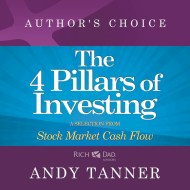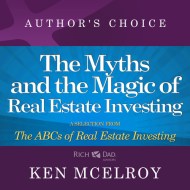By clicking “Accept,” you agree to the use of cookies and similar technologies on your device as set forth in our Cookie Policy and our Privacy Policy. Please note that certain cookies are essential for this website to function properly and do not require user consent to be deployed.
The Futures
The Rise of the Speculator and the Origins of the World's Biggest Markets
Contributors
Formats and Prices
Price
$19.99Price
$25.99 CADFormat
Format:
- Trade Paperback $19.99 $25.99 CAD
- ebook $13.99 $17.99 CAD
Also available from:
-
“Lambert includes numerous colorful anecdotes about the exchanges and their traders, also touching briefly on the 2008 financial crisis. VERDICT: For readers interested in the Chicago exchanges' history, Lambert's book will be satisfying.”
Frank Partnoy, author of The Match King
“Most people know about the derivatives that nearly brought down the financial system. Less known, but even more intriguing, are the futures and options traded on exchanges, especially in Chicago. The Futures is a window into that market and its gripping history, with rough-and-tumble locker room trading floors, loud colorful characters, rumpled shirts, cigars, and — most important — lots of money. The book is a front row seat on a massive gambling operation that has been surprisingly stable for a century and a half, and remains closely connected to the very real worlds of farming and food. If subprime mortgage derivatives had been traded openly in a Chicago pit, instead of secretly among Wall Street banks, we wouldn't have had the recent financial crisis.”
-
Financial Times
“How Chicago's trading pits were transformed from parochial gambling dens in the wake of the great fire of Chicago in 1871 to the electronic trading powerhouses they are today is Emily Lambert's lively narrative, told with a sharp eye for the characters involved.”
Bloomberg News“A bouncy historical jaunt through the city's trading pits.... In brisk yet lyrical prose, Lambert describes how pits pulsating with sweaty guys trading their own dough gave way to computer networks of institutions laying wagers with other people's money. The book is timely. With commodities at two-year highs and record food prices sparking riots, regulators are seeking to curb speculation. Yet the trading explosion reflects innovations that the watchdogs themselves condoned.”
The Week
“While tracking the futures racket from the ‘brawling trading pits' of the 19th century to the ‘glass-tower imperiousness' of today, Lambert heaps plenty of love on the industry's most outrageous risk takers and rogues. Their stories matter, we learn, because past practice shapes even today's markets, making history's heroes and swindlers part of the industry's DNA.”
-
Business Insider.com
“The Futures is delivered as a flat midwestern yarn — as if told by a Chi-town native, holding forth on a barstool over beers.... By the close of the story, the color and the craziness is clearly fading, the pushers and shovers in brightly colored jackets being replaced by the quiet hum of computers. Gone are the days of frantic hand signals, spontaneous fist fights, and drug-using clerks wearing goggles to protect their eyes against paper cuts. As Chicago modernized itself, trading in stockyards for towers of steel and glass, so too has the futures industry. The future is electronic, and global. That makes it all the more fun, though, to revisit the fast, amusing tale of how the exchanges grew up with the city, and the gritty roots of how it all came about.”
The National (Abu Dhabi)
“In writing this book Emily Lambert conducted hundreds of interviews, pored over archives in Chicago's Public Library and Museum and fell a little bit in love with her subject. That affection informs this meticulous history of Chicago's commodity exchanges. It's not an emotion commonly associated with things financial - especially traders. But as Lambert tells the story of the Board of Trade's first “pit,” literally stamped out in the 19th century by the men who gambled on the prices of corn, soybeans, and eggs, that's what comes through.” -
Dennis Kneale, CNBC Media and Technology Editor
“With a passion for pork bellies, Emily Lambert takes us on an unexpectedly entertaining tour of the most volatile gambling pit in the world. Frenzied and fully wired on caffeine and fiber-optics, the exchange shapes food prices and influences global trade, yet it remains obtuse and impenetrable. Not after reading this fine book.”
Justin Fox, author ofThe Myth of the Rational Market
“A highly readable, informative and — here's the most amazing part — downright charming account of where the Chicago derivatives exchanges came from and where they're going.”
Liaquat Ahamed, author ofLords of Finance
“The Futures tells the rich and colorful story of the Chicago futures exchanges — once the homes of trading in grains, eggs and pork bellies, which then went on to remake themselves into the world's central marketplace for financial futures — and the generations of traders and speculators and financial entrepreneurs who ran them. It is not only a book about a transformative episode in financial history, it is also a wonderfully vivid portrait of an important slice of Chicago life."
-
Wall Street Journal
“In The Futures, Emily Lambert addresses the subject with as much affection as is ever likely to be stirred by the pork-belly business. She's a believer: ‘With futures, traders were more than gamblers. Gamblers created risk to bet on. They threw dice that didn't have to be thrown. But in the futures business, men bet on risks that already existed. The corn crop could fail'.... [P]icaresque tales enliven what could have been a dry subject.”
Kirkus
“[Lambert] devotes loving attention to a parade of outrageous risk-takers.... Although she provides lucid explanations of how the market works and how the various money-making strategies collide, the charm of her fast-paced, informal history comes from the book's animating insight: ‘Finance is like biology: Everything is intertwined.' For the general reader, a full-blooded introduction to an arcane world.”
Booklist
“[A] colorful history.... Lambert, a senior writer for Forbes magazine, keeps the story moving with a surprising litany of legendary traders you probably never heard of until now.”
Library Journal
- On Sale
- Mar 6, 2012
- Page Count
- 248 pages
- Publisher
- Basic Books
- ISBN-13
- 9780465028412
Newsletter Signup
By clicking ‘Sign Up,’ I acknowledge that I have read and agree to Hachette Book Group’s Privacy Policy and Terms of Use







